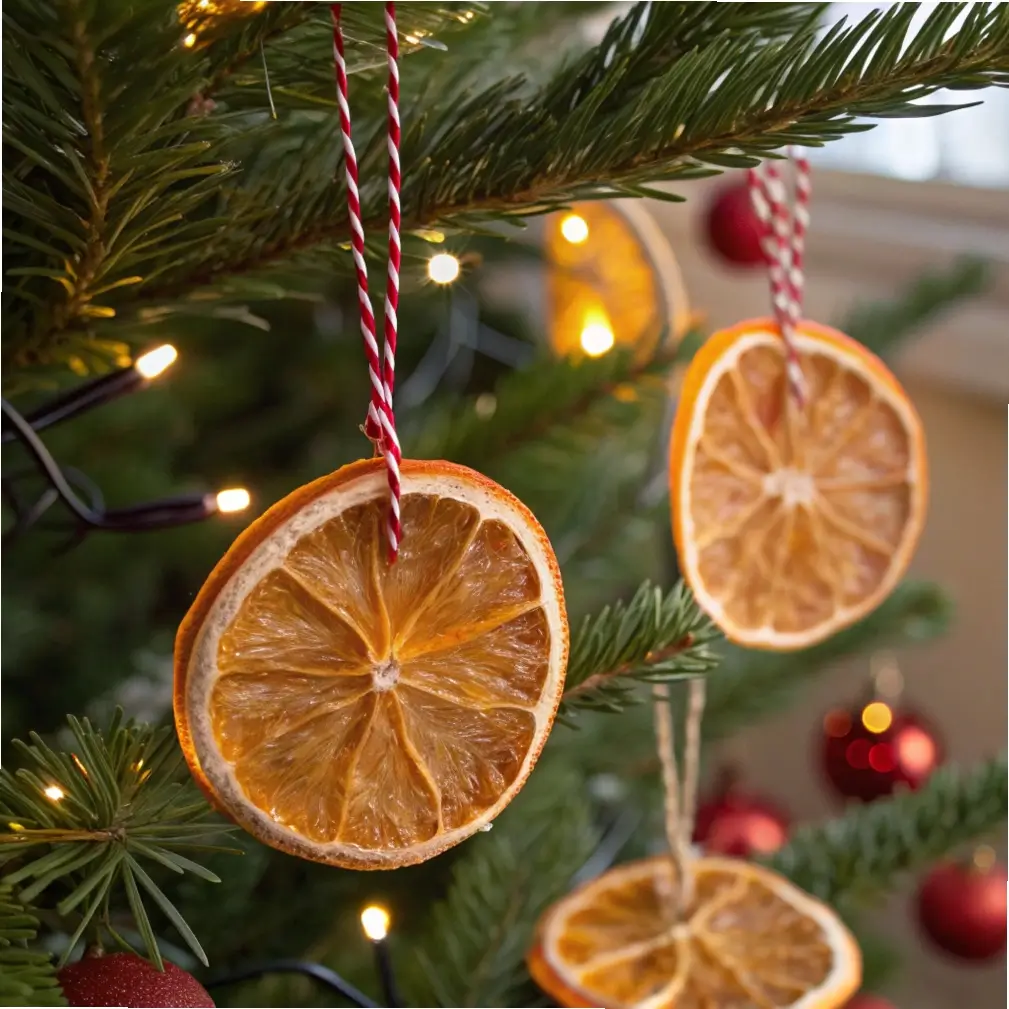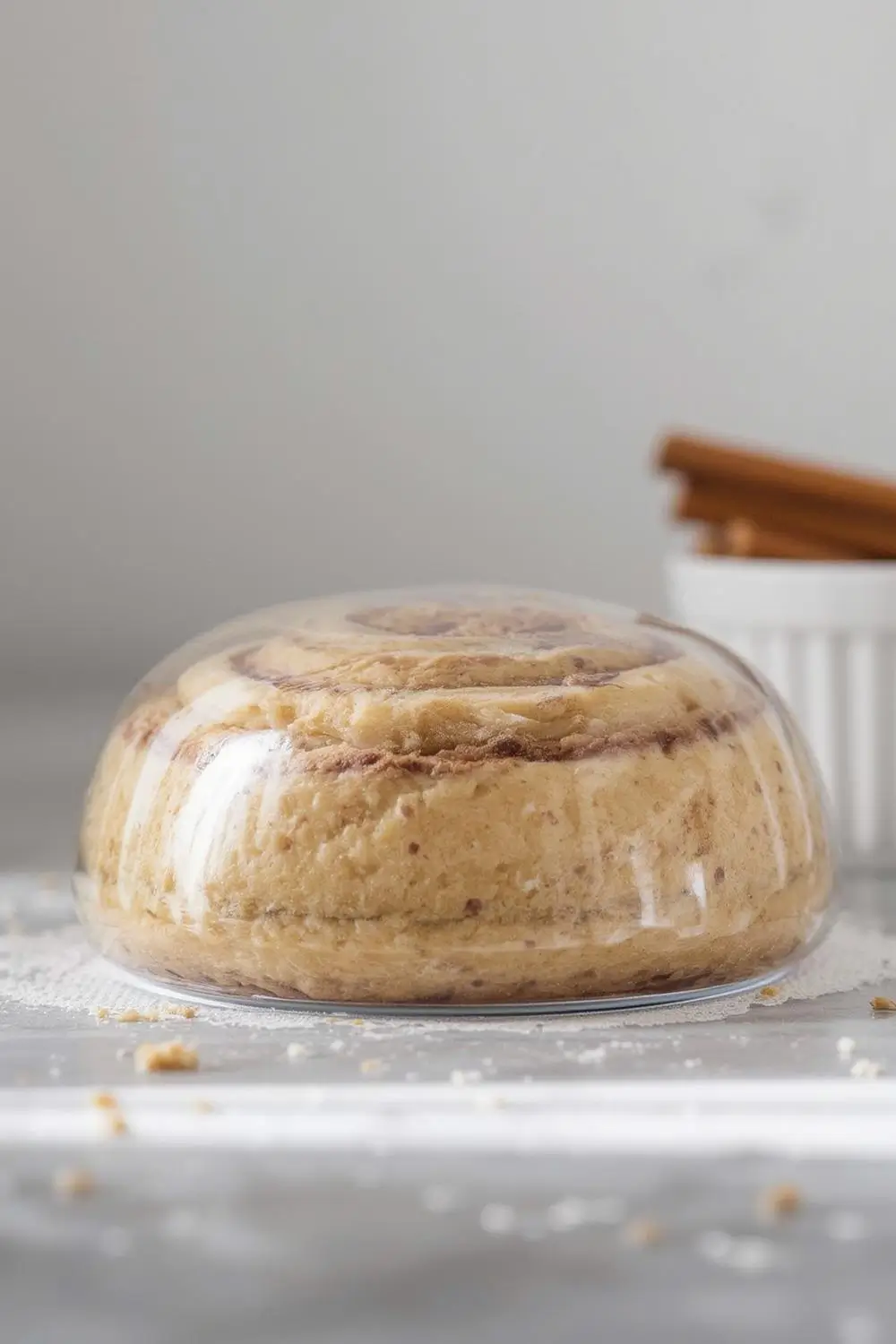Table of Contents
- 1 Why Use Candied Orange Slices for Christmas Decorations?
- 2 Ingredients You’ll Need
- 3 Kitchen Tools
- 4 How to Make Candied Orange Slices
- 5 How to Use Candied Orange Slices as Christmas Decorations
- 6 Decorative & Edible Storage Tips
- 7 Creative Variations
- 8 Troubleshooting
- 9 Eco-Friendly Benefits of Using Candied Oranges for Holiday Decor
- 10 Frequently Asked Questions
- 11 Final Thoughts
If you’re looking for a natural, fragrant, and festive way to decorate your home this Christmas, candied orange slices are the perfect solution. Not only do they add a beautiful pop of color to your tree, wreaths, and garlands, but they also fill your space with a warm, citrusy aroma that instantly evokes the spirit of the holidays.
Candied orange slices are more than just a pretty face — they’re completely edible, sweet, chewy, and can be used in everything from desserts to DIY crafts. Whether you’re going for a rustic holiday vibe or an elegant Scandinavian-inspired look, these glistening slices fit seamlessly into any festive setting.
Let’s explore how to make and use candied orange slices for Christmas decorations, with tips for drying, styling, and storing — and all without any artificial ingredients or waste.
Why Use Candied Orange Slices for Christmas Decorations?
All-Natural Beauty: Made with just oranges and sugar, they provide a chemical-free alternative to synthetic decor.
Eco-Friendly & Zero-Waste: Compostable and edible, they leave no lasting impact on the environment.
Multi-Purpose: Perfect for ornaments, garlands, wreaths, table settings, and even edible gifts.
Seasonal Fragrance: Their gentle citrus scent adds a cozy, festive smell to your home.
Affordable & Simple: No need for expensive craft supplies — just a few pantry staples.
Ingredients You’ll Need
3–5 fresh oranges (navel, Valencia, or blood orange)
2 cups granulated sugar
2 cups water
Optional: 1 tsp lemon juice (to help preserve color)
Optional spices for aroma: cinnamon sticks, cloves, or star anise
Kitchen Tools
Sharp knife or mandoline
Saucepan
Cooling rack or parchment paper
Slotted spoon
Baking tray (for drying in oven)
Needle and twine or natural jute string (for crafting)
How to Make Candied Orange Slices
Step 1: Wash and Slice
Start by thoroughly washing your oranges to remove any wax or residue. Pat them dry. Using a very sharp knife or mandoline, slice the oranges into thin, even rounds about 1/8 inch thick. Discard the end pieces and remove any seeds gently without tearing the flesh.
Step 2: Blanch (Optional but Recommended)
To reduce bitterness and help set the vibrant color:
Bring a pot of water to boil.
Add orange slices and blanch for 1–2 minutes.
Immediately transfer to a bowl of cold water.
Drain and set aside.
Step 3: Prepare the Sugar Syrup
In a wide saucepan, combine the sugar and water over medium heat. Stir until the sugar is fully dissolved. Add a dash of lemon juice and any optional spices for extra fragrance.
Step 4: Simmer the Orange Slices
Reduce heat to a low simmer. Carefully place the orange slices into the syrup in a single layer (you may need to do this in batches). Let them simmer for 45–60 minutes, gently flipping halfway through.
The slices are done when they look translucent and glossy. Be careful not to boil — slow simmering ensures they don’t fall apart.
Step 5: Dry the Slices
Using a slotted spoon or tongs, transfer the slices onto a wire rack placed over parchment or a tray. Let them air dry for 12–24 hours, or speed up the process:
In the oven:
Preheat to 170°F (75°C) or the lowest possible setting. Bake the slices on parchment for 2–3 hours, flipping every 30–40 minutes, until mostly dry but still slightly tacky.
Let them cool completely before using.
How to Use Candied Orange Slices as Christmas Decorations
Tree Ornaments
Use a needle to poke a small hole near the edge of each dried slice. Thread natural twine, ribbon, or jute string through and tie a loop. Hang them on your Christmas tree for a rustic, golden-orange glow when light passes through.
Tip: Combine with cinnamon sticks, pinecones, or dried cranberries for a complete natural look.
Garland
String multiple slices onto a long piece of twine to create a beautiful edible garland. Alternate with:
Dried apple slices
Cranberries
Wooden beads
Small pine sprigs
Hang across your mantel, staircase railing, or windows for a handmade feel.
Wreath Embellishments
Glue or tie candied orange slices onto a green wreath base. Pair with:
Eucalyptus or fir branches
Whole cloves
Star anise
Dehydrated citrus wheels
Burlap bows or cinnamon bundles
Perfect for a front door wreath or table centerpiece.
Gift Wrapping
Attach a single candied orange slice to a wrapped gift with jute or baker’s twine. It adds a charming, homemade touch to plain paper packages.
Table Decor
Place one slice at each setting, perhaps tied to a napkin ring or name card. Or sprinkle a few around centerpieces for warm color and natural fragrance.
Edible Christmas Cards or Tags
Write on dried slices with food-safe markers and attach to gifts or jars of holiday treats.
Decorative & Edible Storage Tips
Store in an airtight container at room temperature for up to 2 weeks.
Add a piece of parchment paper between layers to prevent sticking.
You can refrigerate them to extend shelf life, but ensure they are fully dry first.
For crafting purposes only, you can store dried slices in a cool, dry place for up to 1–2 months.
Creative Variations
Blood Oranges: Stunning ruby-red tones offer a rich, dramatic touch.
Grapefruits or Lemons: Mix citrus types for a beautiful medley.
Dust with sugar: Roll in fine sugar after drying for a frosted, snowy look.
Chocolate-dipped edges: For a mix of rustic and indulgent (edible only).
Spiced syrup: Infuse your syrup with cinnamon, ginger, or cardamom for extra aroma.
Troubleshooting
Why are my slices bitter?
Blanching helps remove bitterness from the rind. Thinner slices and proper simmering also reduce it.
They’re still sticky after drying. What do I do?
Continue drying them in the oven at a low temperature until just tacky but not wet. Cooling helps them firm up.
How can I make them crisp like ornaments?
After candying, you can dehydrate them longer in the oven or use a food dehydrator to get a crisp texture suitable for long-lasting decor.
Can I skip the candying and just dry them?
Yes! Slices can be dried directly in the oven for a more matte, rustic look — but candying gives them a vibrant, glassy finish and longer shelf life.
Eco-Friendly Benefits of Using Candied Oranges for Holiday Decor
No plastic or synthetic materials
Compostable after the season
Dual purpose: Looks beautiful and can be eaten or gifted
Less waste: Great use of citrus that might otherwise spoil
Making your own holiday decor is a fun family activity, especially with kids who can help thread garlands or tie ornaments.
Frequently Asked Questions
Can I use store-bought orange slices?
Pre-dried oranges are often too tough and dull in color. Homemade versions give better results and aroma.
Can I candy other fruits the same way?
Yes — lemons, blood oranges, grapefruit, limes, and even apples can be candied similarly.
Are candied orange slices safe for pets if used in decor?
It’s best to keep citrus away from pets as it can upset their stomachs. Hang decorations out of their reach.
How long do candied orange slices last as ornaments?
If fully dried, they can last several weeks to a couple of months. For food-safe uses, consume within 2 weeks.
Do they attract bugs or ants?
If you live in a warm or humid area, it’s best to store edible decor in sealed containers or use them indoors only.
Final Thoughts
Candied orange slices bring together beauty, fragrance, and function in one humble citrus wheel. With just oranges, sugar, and a little time, you can create something that adds sparkle and sentiment to your Christmas celebrations.
From tree ornaments to garlands, table decor to edible gifts, these golden slices offer endless creativity. Even better? They smell like Christmas — warm, cozy, and citrus-sweet.
So this holiday season, skip the plastic and make room for something homemade, heartwarming, and unforgettable.





